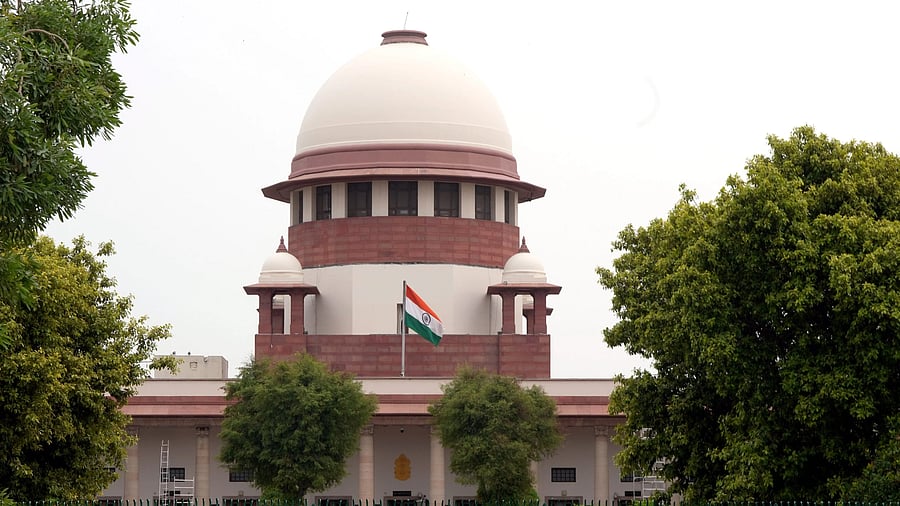
The Supreme Court of India.
Credit: PTI
New Delhi: The Supreme Court has set aside the Kerala High Court's recent judgment that a debt created by a cash transaction above Rs 20,000 in violation of the provisions of Section 269SS of the Income Tax Act is not a ‘legally enforceable debt’ under the Negotiable Instruments Act.
In its judgment in P C Hari vs Shine Varghese & Anr, the High Court has said, unless there is a valid explanation, the presumption under Section 139 of the Act will not be attracted in cash transactions above Rs 20,000.
A bench of Justices Manmohan and N V Anjaria held the view that any transaction above Rs 20,000 is illegal and void and therefore does not fall within the definition of ‘legally enforceable debt’ cannot be countenanced.
The court reasoned that any breach of Section 269SS is subject to a penalty only under Section 271D of the IT Act.
Neither Section 269SS nor 271D of the IT Act, stated that any transaction in their breach will be illegal, invalid or statutorily void, it stressed.
"Therefore, any violation of Section 269SS would not render the transaction unenforceable under Section 138 (cheque dishonour) of the NI Act or rebut the presumptions under Sections 118 and 139 of the NI Act because such a person, assuming him/her to be the payee/holder in due course, is liable to be visited by a penalty only as prescribed," the bench said.
In a judgment on September 25, 2025, the bench flagged that some District Courts and some High Courts are not giving effect to the presumptions incorporated in Sections 118 and 139 of NI Act and are treating the proceedings under the NI Act as another civil recovery proceedings and are directing the complainant to prove the antecedent debt or liability.
"This court is of the view that such an approach is not only prolonging the trial but is also contrary to the mandate of Parliament, namely, that the drawer and the bank must honour the cheque, otherwise, trust in cheques would be irreparably damaged,'' the bench said.
The court allowed an appeal filed by Sanjabij Tari against Bombay High Court's judgment of 2009, which acquitted accused Kishore S Borcar under Section 138 of the Act.
The HC reversed the concurrent judgments of the Trial Court and the Sessions Court.
Restoring the trial court's judgment, the court directed the accused to pay back Rs 7,50,000 in 15 equated monthly instalment of Rs 50,000 each.
Considering the appeal, the court said, the HC, in exercise of revisional jurisdiction, does not upset concurrent factual findings, in the absence of perversity.
"It is not for the revisional court to re-analyse and re-interpret the evidence on record,'' the bench said.
The court pointed out, the accused failed to reply to the statutory notice under Section 138 of the NI Act, which leads to an inference that there is merit in the appellant-complainant’s version.
The court held the High Court’s view that the accused had given a cheque to the complainant to obtain loan, as unbelievable and absurd.
It concurred with the Sessions Court’s finding that, “It is funny to say that for obtaining loan from the bank, one can show a cheque which is issued on an account in which there are not sufficient funds. The case of the accused is unbelievable”.
